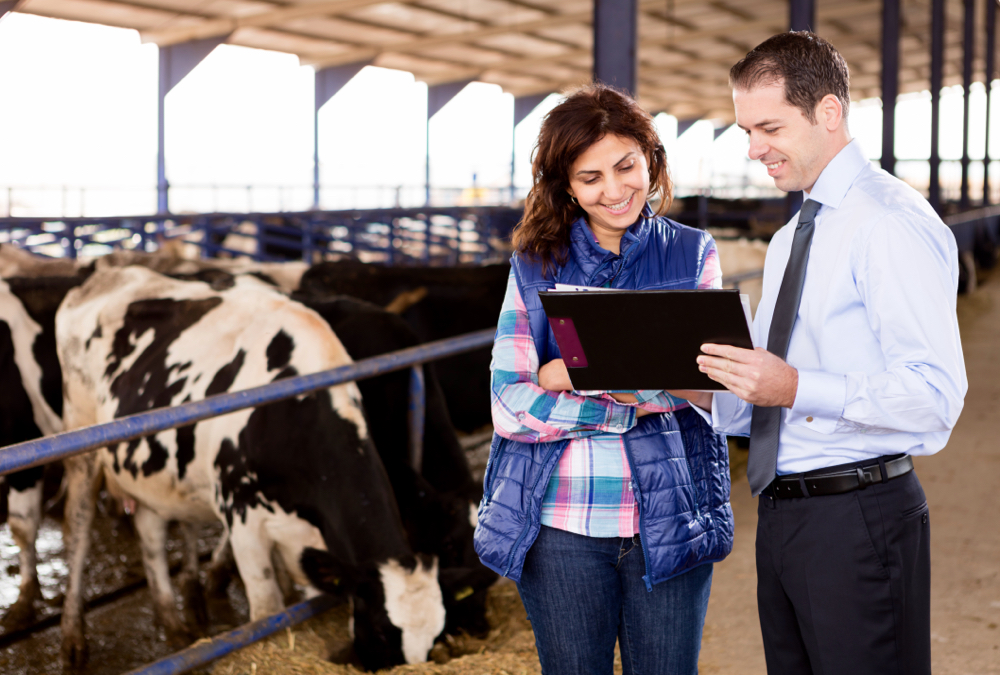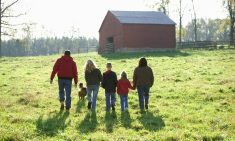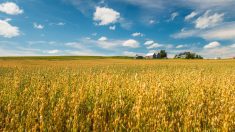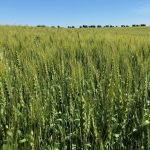It’s hard to make a plan that will stick. We all know it. The pressure of things you need to do today can overshadow the importance of getting ready for the things you might want to be doing five years from now.
Besides, you have a good four years left. Surely there will be a better time than today for getting ready for 2027, right?
But, as we know, five years goes fast, and if you don’t have a business plan with some clear objectives and goals, all the decisions along the way may be that much harder — and that much slower — to make. At the very least, it will be a rougher ride.
Read Also

Executive decisions: what and when to delegate on the farm
Consider the end state you’re working to achieve on your farm when deciding what tasks to delegate, when to do so and on whom, farm management advisors recommend.
That’s what the farm business enthusiasts have been saying all along. And now, after 2021 and the first half of 2022, tons more farmers are thinking they might have been right all along.
[RELATED] On board with insight
Unimaginable disruptions have come from all directions and affected every aspect of our lives from the food we find (or can’t find) on the grocery store shelves to the desperate scramble to source everything from machinery parts to fertilizer.
But then, there are also those who say that no one could see black swans like the pandemic and the Ukraine invasion coming, so what would have been the use of planning?
Michael von Massow, economics professor at the University of Guelph and one of the country’s top go-to experts on farm business planning, isn’t one of them. “There is real value in formalizing and documenting a plan so that you have an idea of where you’re going,” he says. “And it’s particularly important when lots of things are changing.”
“When there are lots of things going on, it’s very easy for us to get knocked off course,” von Massow says. “And if we get knocked off course, and we don’t have a good sense of where we’re headed, it becomes difficult to correct, and we can end up going in circles and doing things that are unproductive.”

Von Massow believes that “plan” should always be a verb rather than a noun because it’s the process of planning that is important. Part of that process is to take a breath on a regular basis, and to lift your head above the fray to make sure you are still heading in the right direction.
“We all get so busy scrambling to get things done that sometimes we’re doing things that aren’t getting us towards where we’re trying to go,” says von Massow, who also has a long track record working as a consultant to ag businesses.
“In agriculture, we’re subject to the vagaries of the weather, the market, consumer demand and many other things, so although there may be some significant changes in the landscape, with a plan we know where we are going and why we are we going there. As things come up that knock us a bit off course, we should rethink where we’re headed, but that should be on purpose. So often, we get off course doing things because it seemed like a good idea at the time, but if we stop and look up, we can see if it’s a change we need to make, or an opportunity that’s worth chasing, or if it’s not worth doing.”
What plan is right for you?
It’s not hard to become a bit confused about the planning process when there seem to be so many different types of plans: business plans, transition plans, operations plans, strategic plans.
Generally, a strategic plan is a bigger-picture, overall vision of where the farm wants to go, including an assessment of where it’s at and some defined tactics to get it to where it wants to be. The strategic plan by its nature will likely encompass some kind of transition plan, but won’t necessarily get into the nitty gritty of how assets and farm roles will be distributed as the next generation takes over in the same detail that a formal transition plan does.
An operations plan, by contrast, is more short term and deals with the day-to-day tasks, such as what to plant in which field, which cows will calve when, or what fertilizer or herbicide you are going to use where.
Then there is also the business plan. It’s is a formal document that is prepared to show to your banker or other advisors, and will likely contain a lot more financial information.
These definitions may not be the same for everyone, and they are often adapted with different information for different audiences, but they should all be consistent in their vision and goals.
“If you have three or four different plans and they’re all saying different things, you’re not doing it right,” von Massow says. “You might articulate them differently, you might focus on different things within them, but if there isn’t a common thread throughout them, if they aren’t weaving the same narrative, then you’re in trouble.
“If you’re telling your banker one thing and your kids another, and you’re doing another thing entirely … that’s not what you want to achieve. You might have different chunks and emphases, but there should be some commonality throughout.”
Why bother?
If nothing else, planning forces you to think about what you can and can’t control.
“It allows you to say here’s what could happen, and here’s what will happen if things are really good,” Von Massow says.
“It allows you to bring in contingencies, and say these are the things that I can do, should these things happen. There are things that you can’t anticipate but there are things that you can, and that gives you greater certainty. And it also gives you a framework within which to evaluate and respond should things go badly off the rails. If you have that framework, it gives you greater peace of mind that you have an approach to dealing with those curveballs that life throws at you.”
Time for a change
What will it take to find yourself looking in a mirror in 2027 and saying, ‘Thank heavens I made some pretty smart decisions back in ’22’
There may be a little more cash in the bank and a healthy splash of black ink on the balance sheet this year — or at least we hope.
So, does that mean 2022 is a good year to make changes? Or does it mean that it’s a good year to solidify your position and see what happens next?
This shouldn’t be a quick decision, argues Mike von Massow, ag economist at the University of Guelph.
In fact, it may be harder in an extraordinary year like 2022 because there are so many talking heads out there offering their advice and recommendations.
The challenge, von Massow says, is that they can all sound so persuasive, yet every farm is different and it needs to make decisions based on its own circumstances and ambitions, not based on what seems right for the great mass of producers.
“It’s a bit about future-proofing,” von Massow says, “but it’s also about being sure that you are behaving in a way that is consistent, whether times are good or bad, with the economic sustainability of the farm, and in a way that is building long-term resilience to get you where you want to go.”
So, what are some of the options that farmers need to think about if they want to look back in five years time and say ‘I made some pretty smart decisions in 2022 that have helped me be successful today?’
That very much depends on the farm and its vision for the future, von Massow says. An example would be paying off debt, which makes sense particularly as interest rates seem likely to keep rising. But, for a 30-year-old producer who has a long-term plan to expand the farm operation, and who has the opportunity to buy a piece of land, the better choice might be to purchase the land, rather than pay down existing debt, if it’s consistent with their plan.
On the other end of the spectrum, a producer who is 60 years old and winding down the operation is not likely to look upon a land purchase opportunity the same way, and will have other priorities, like continuing to invest in retirement savings or low-risk investments rather than putting more money into the operation or paying off debt, which is likely to be lower than that of a younger producer anyway.
“There’s not one thing that works for everyone, which is why I emphasize how critical it is to have a plan because there will be a lot of talking heads out there who say, this is what you should do when times are good, or this is what you should do when times are tough,” Von Massow says.
“The problem is, those things aren’t generalizable to everyone; it depends on your circumstance. So, if I’m going to look back in five years and say ‘I really took advantage of 2022 and it set me up for success,’ it’s because I had a plan, I made decisions that were specific to me, and didn’t do some mass tactic that someone said was a good idea.”
There are, of course, times when circumstances drive decisions, but even then, a sound business plan provides farm owners with a touchstone.
“When things are good, there’s nothing wrong with accelerating a plan, and when things are bad, sometimes we have no choice but to make a decision relative to specific challenges. But if we have a plan, if we understand that part of the plan is understanding what your risk is, when times are good, sometimes paying off some debt, retrenching, and not buying that super new shiny piece of equipment which is not consistent with the plan, is the right thing to do.”
That doesn’t mean that farm owners can’t pursue opportunities. In fact, the reality is that often, when times are good, opportunities abound, but the plan makes it easier to decide which opportunities to chase and which to let go.
Says von Massow, “Whether things are good or bad, having a plan, within which you evaluate every decision, is a profoundly powerful stabilizing force.”
The right time
Today is a great day to get started
Research shows that farmers with a business plan experience less stress. That’s all well and good, of course, but who has time to get started on a plan when the whole exercise seems so complicated and problematic.
You’re just trying to get through 2022 with an eye to all the decisions you’re going to have make in order to be ready for 2023. So who can afford to be thinking about long-term objectives like how the farm will grow or diversify, or how the next generation will be brought on board and the outgoing generation will retire, not to mention how to get strategic about your finances and your asset and wealth management, or how to adopt technology to improve efficiency.
Isn’t that what a snowy day in winter is for? Well, it turns out now is actually one of the best times to get started.
University of Guelph prof Mike von Massow says there are four basic steps:
Where do you want to go?
It really doesn’t matter what you call the plan. It can be a strategy, vision, mission or business plan, but it is basically a view of the future that acts as a touchstone to ensure the farm, and the people involved in the farm, are going in the right direction and identify when they need to change that direction. The most important thing is to make sure everyone is on the same page. What positives have you got that you can build on? “It’s important that where you want to go — which may be exactly where you’re already going —- is stated explicitly,” von Massow says.
“A plan doesn’t necessarily mean that you have to change anything. It may be an opportunity for change, but it may be a re-affirmation that you’re heading in the right direction.”
Where are you now?
This isn’t about assessing the farm assets. It’s more important to assess the people who are going to be moving the farm into the future you want to see. What is each person good at, what do they enjoy, and what do they need to get better at? What’s important to each one on a personal and business level?
“Ever since I’ve been involved in agriculture, people have called themselves producers,” von Massow says. “That defines them based on what they produce … farmers need to think of themselves as managers and say, what assets do we have and what is the best way for us to succeed, not only for financial success but also personal satisfaction. What is the best way for us to succeed in a way that is sustainable, so we can keep doing what we want to do? Think about the assets you have, the opportunities, how markets are changing and ask, ‘Where do I think there’s a real opportunity for me to end up and be successful?’
How will you get to where you want to go?
What tactics and specific steps along the way will you need? Create a road map and milestones to get you there. Bring in all the resources you have to give advice including accountants, lawyers, bankers, farm advisors. Even if planning doesn’t require changing anything, it validates that you are on the right track and that you are going to do the things you need to stay on track.
How are you doing?
The plan should provide benchmarks to measure and evaluate where you are at and if you need to make adjustments. “This is the step that people often do the least well,” von Massow warns.
Every farm has short-term objectives, such as getting the crop off, and on a daily basis you monitor how well you’re making progress toward that and what you need to do a great job at that. “We’re very good at evaluating short-term priorities and actions. What we’re less good at doing is sticking our head up and saying, Are we still going in the right direction?”
















